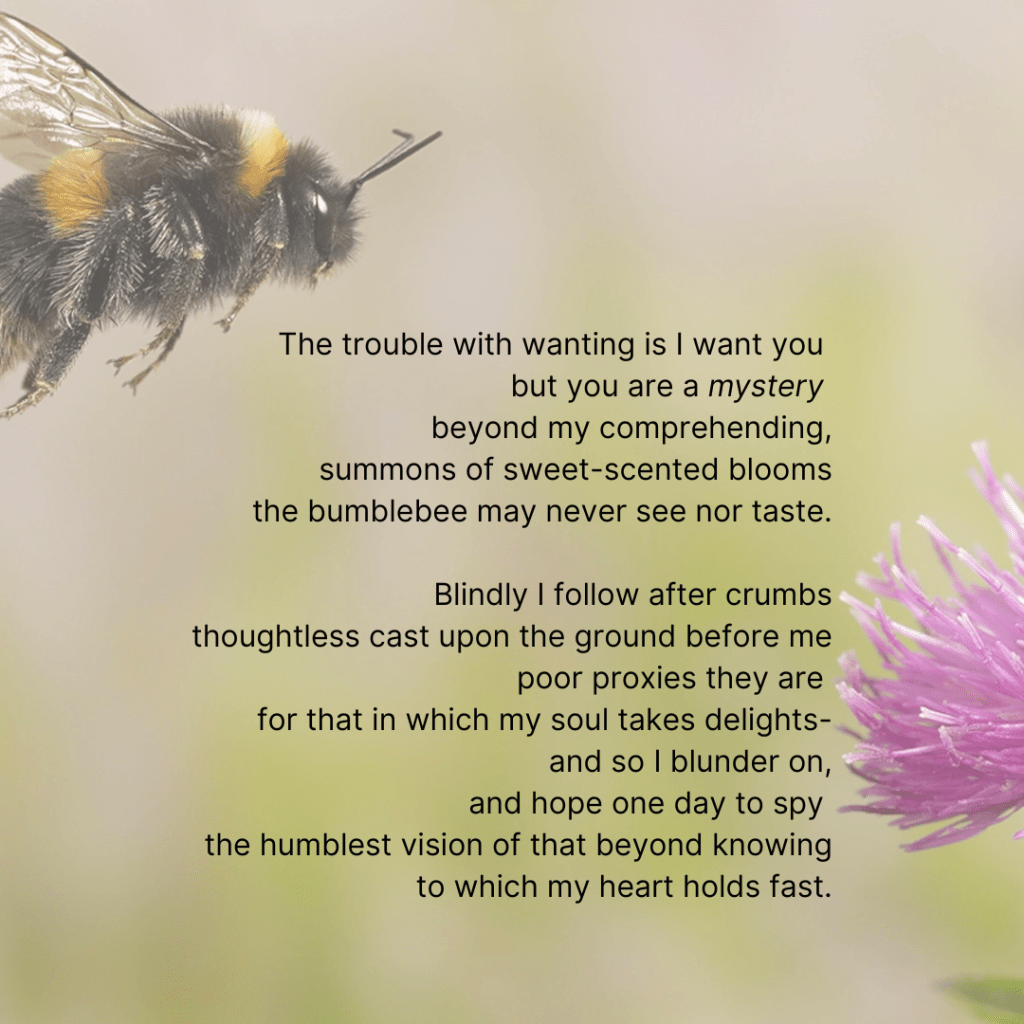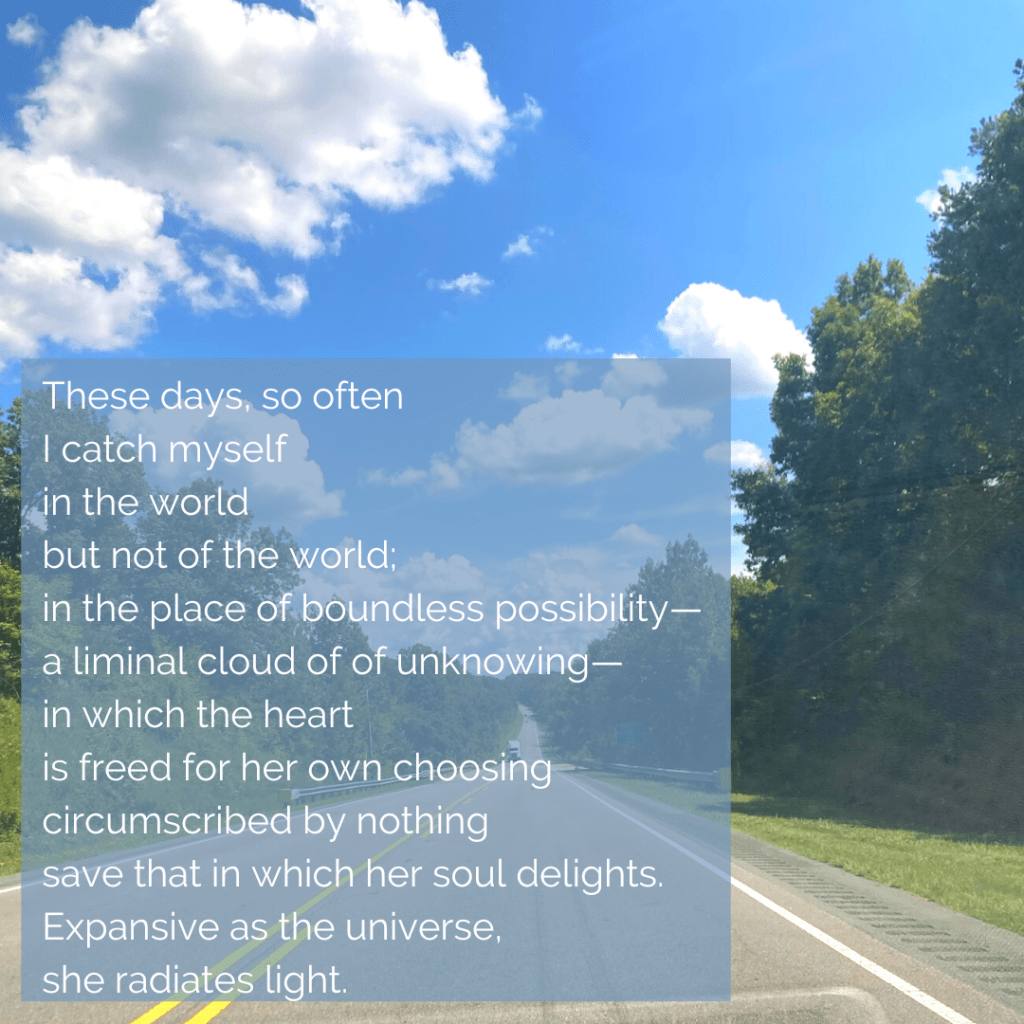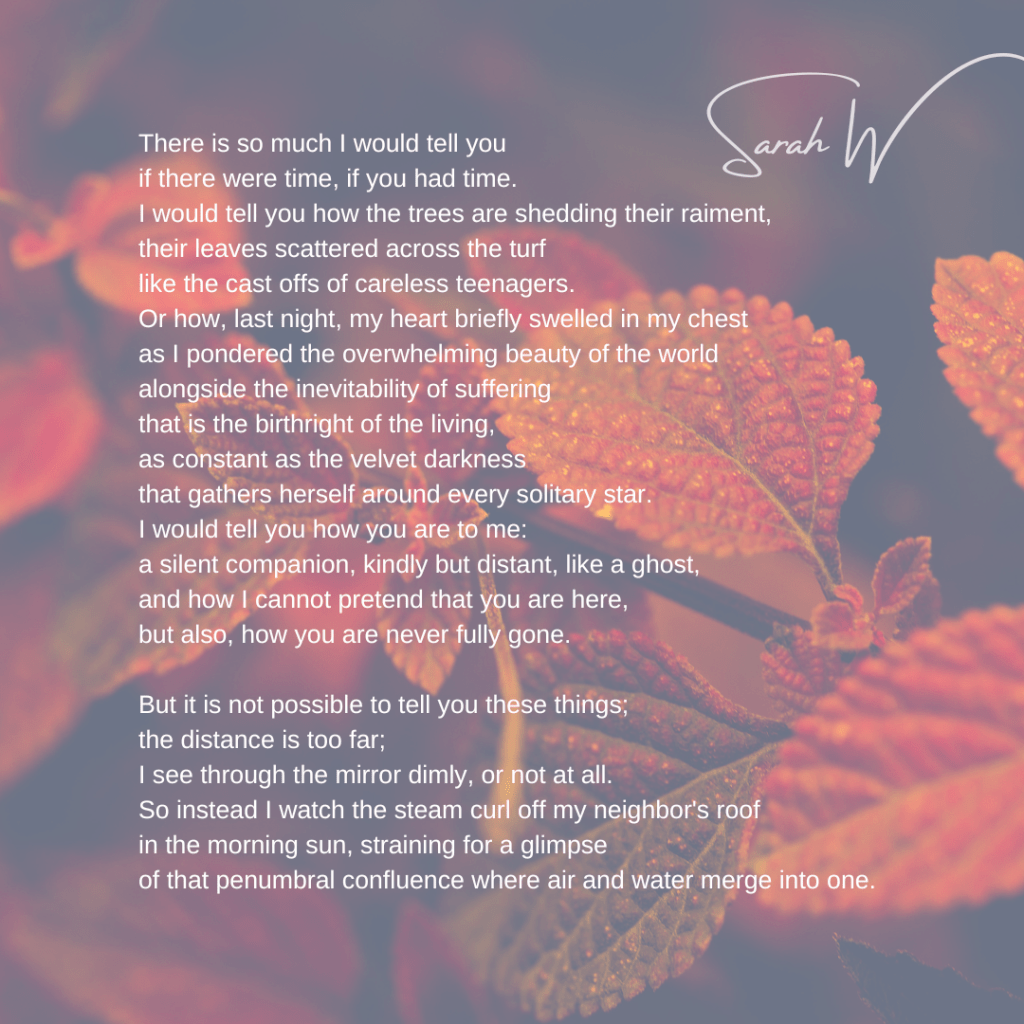A few years ago, someone gifted me a copy of a book by Kathleen Norris entitled “Acedia and Me: A Marriage, Monks, and a Writer’s Life.” I considered the tome for all of about 10 minutes before deciding that it had nothing helpful to teach me, after which I set the volume upon my bookshelf where it might begin its task of collecting dust.
How could I have imagined that, in the span of just a few years, I would find myself held in stasis by what Norris describes as a “restless boredom, frantic escapism, commitment phobia, and enervating despair that plagues us today.” I can describe it only as the feeling of being, on the one hand, completely incapable of sitting still or of being alone with myself and my own thoughts, and on the other hand, feeling disturbingly incapacitated and utterly incapable of the fruitful endeavors that previously filled my time.
It has been such an unexpected and unwelcome turn of events that, strangely, I have felt compelled to write (and to write, and to write, and to write some more) about the perturbations that it has stirred up–driven to examine from every angle the ways in which this “scourge of the soul” affects me even as I have found myself nearly incapable of stringing together coherent, written observations for the worshipping community which I serve. Somehow, acedia has managed to simultaneously silence and unfetter my internal voice. It has caged the writer but unleashed the poet.
At first, I mocked my own drive to write more lyrically. I told anyone who might encounter my words that they were “deeply average” and “crappy poetry for beginners.” I think a part of me was (and perhaps still is) disappointed in myself. Whereas before I felt completely in control of my voice, now I experience my writing as deeply vulnerable, needy, and exposed. Because decent poetry resists the urge to explain itself, I have to let it speak on its own terms, and allow others to make their own connections. I have to be okay with the possibility that my own needs, wants, and desires will lay right on the surface, unhidden by fancy turns of phrase.
What has been fascinating is that poetry has in some ways been an antidote to acedia. It has forced me to pay attention to what I am really feeling, right now, right here. I have been made to confront the longings of my heart rather than escape them and to acknowledge the things within me that I am ashamed of, because they cannot be denied. They are a part of me too. Poetry has forced me, in other words, to care about myself. And while that is difficult, agonizing work, it is also deeply necessary, for it is care for the self that lifts us out of our despair, and back into life.









